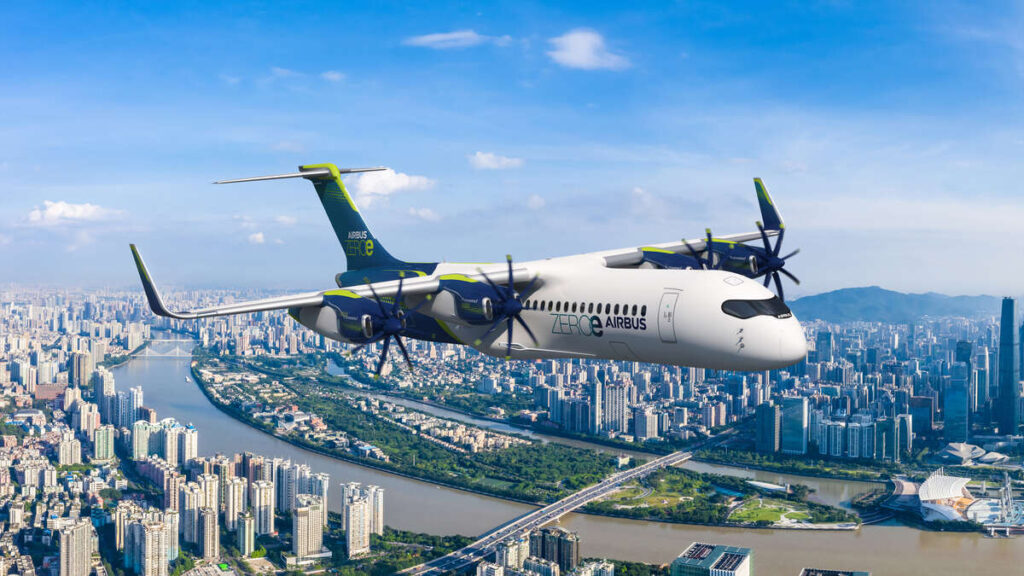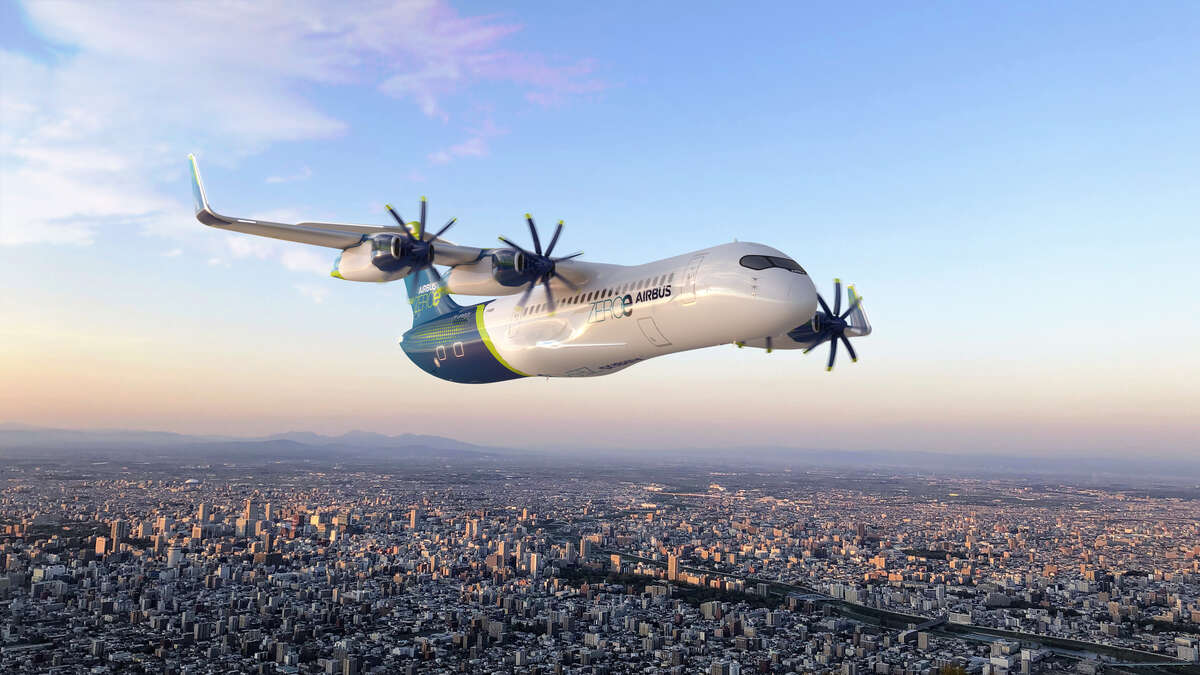Reading time: 4 minutes
Key Points:
- Airbus reaffirms its commitment to hydrogen aviation during the 2025 Airbus Summit.
- The company unveiled a notional hydrogen-powered aircraft concept using four 2MW electric engines driven by hydrogen fuel cells.
- This fully electric concept was selected after years of studying multiple hydrogen propulsion configurations.
- Airbus plans integrated system testing of hydrogen storage and propulsion by 2027.
- Collaboration with Air Liquide and continued regulatory advocacy are central to Airbus’ long-term hydrogen strategy.
At its 2025 Summit in Toulouse, Airbus pulled back the curtain on its most advanced vision yet for hydrogen-powered commercial aviation. Building on its ZEROe initiative, the company presented a new concept aircraft powered entirely by hydrogen fuel cells, marking a decisive step in its long-term strategy to decarbonize flight.
The presentation came alongside broader updates to Airbus’ technology roadmap, which includes both SAF-compatible next-generation narrowbodies and hydrogen-powered aircraft targeting entry into service in the second half of the 2030s.

A Fully Electric Hydrogen Aircraft: The Concept
Airbus’ latest notional concept features a four-engine layout, each powered by 2-megawatt electric motors supplied by dedicated hydrogen fuel cells. Two cryogenic tanks would supply liquid hydrogen to the fuel cell stacks, which convert hydrogen and oxygen into electric power without combustion—eliminating CO₂ emissions entirely.
According to Bruno Fichefeux, Head of Future Programmes at Airbus:
“Hydrogen is at the heart of our commitment to decarbonise aviation… Just as we saw in the automotive sector, fully electric aircraft powered by hydrogen fuel cells have the potential to revolutionise air transport.”
The concept builds on Airbus’ multi-year technology maturation efforts and offers a clear path forward for small to medium-range commercial aircraft in a zero-emissions future.
From Concepts to Hardware: Building Momentum
In 2023, Airbus successfully tested a 1.2MW hydrogen propulsion system. By 2024, the company had completed end-to-end testing of integrated components—including fuel cell stacks, inverters, electric motors, gearboxes, and thermal management systems.
To tackle the complexity of liquid hydrogen storage and handling, Airbus is working closely with Air Liquide Advanced Technologies. Together, they’ve developed the Liquid Hydrogen BreadBoard (LH2BB) in Grenoble, a ground-based system designed to simulate and validate hydrogen distribution under flight-like conditions.
The next major milestone is planned for 2027: integrated system testing at the Electric Aircraft System Test House in Munich, where the propulsion system and LH2 distribution network will be tested together under operational loads.
Why Hydrogen, and Why Now?
While Sustainable Aviation Fuel (SAF) is a key enabler of near-term emissions reductions, hydrogen is central to Airbus’ vision for long-term aviation decarbonization. Hydrogen-powered aircraft promise to eliminate both CO₂ and soot emissions, potentially reducing contrail formation as well.
Glenn Llewellyn, Head of the ZEROe project, explained the rationale behind Airbus’ fuel cell direction:
“We are confident it could provide the necessary power density for a hydrogen-powered commercial aircraft… In the coming years, we will concentrate on advancing the storage, distribution and propulsion systems.”
At the same time, Airbus recognizes that technology alone is not enough. Establishing a hydrogen aviation ecosystem—complete with infrastructure, supply chains, and regulatory frameworks—is essential for the commercial viability of such aircraft.
Looking Ahead
With its updated roadmap and refined hydrogen concept, Airbus is laying the groundwork for a true zero-emissions aircraft—one that could redefine regional air transport in the 2030s and beyond. While there are still technical and policy hurdles to overcome, the message from the 2025 Summit is clear: the hydrogen era of aviation is no longer a distant dream—it’s actively taking shape.
As other manufacturers, energy providers, and regulators follow suit, Airbus is positioning itself not just as an aircraft builder, but as a catalyst for an entirely new aviation ecosystem.

